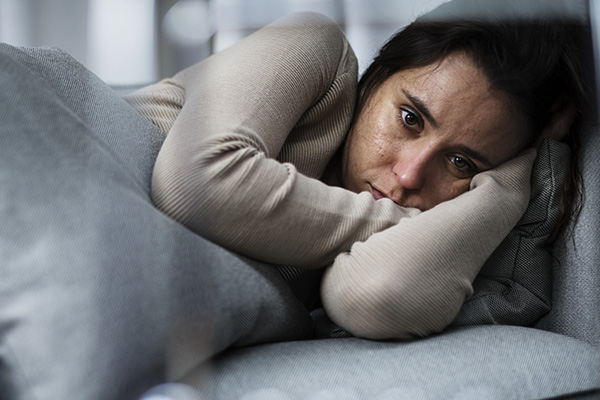The Facts You Should Know About Post Partum Depression

Postpartum depression is a severe condition that causes many women to feel increasingly sad after the birth of their new baby. It is important to note that mostly all women will go through a time known as "baby blues" where they feel sad, have increased anxiety, trouble sleeping, and other problems. These baby blues can be temporary. However, postpartum depression may not go away, become severe or interferes with a woman's daily life and schedule.
It is essential to recognize the signs of it, and for a woman to get the help, she needs if she is suffering.
Signs of postpartum depression
There are many signs of postpartum depression. The symptoms may be noticed by a woman, her physician, or her significant other. The typical signs include, but are not limited to:
- Increased anxiety
- Increased sadness
- Increased sleepiness
- Reduction in the ability to care for others
- Thoughts of suicide
- Overwhelming feelings that are hard to make go away
- Moody or irritable
- Crying more often than usual
- Physical aches and pains
Some women will have all of these symptoms, while others may only suffer from one or two. This makes it essential to see a doctor for a proper diagnosis.
Who is at risk for postpartum depression
Any woman who has a baby is at risk for developing postpartum depression. Women are more prone to having this type of depression if they have some of these:
- Postpartum depression in the past with another child
- History of mental illness that runs in the family
- Previous experience with depression, even if it is not postpartum related
- Negative feelings about the pregnancy
- Medical complications with the pregnancy
- Substance abuse issues
- Lack of emotional or physical support
- Stressful life events
Even if a woman does not have any of these after she has a baby, she is still at risk for developing this type of depression. It is essential to see a provider if a woman feels that she may have this condition.
Treatment options
The options available depend on the individual woman and her specific situation. It is essential to consider all the options before moving forward with one. Some of the treatment options include:
Medications
Medications are often the most used treatment options for this type of depression. There are many available that can help a woman get back to herself. Depending on her medical history and the severity of the depression, a medication will be recommended. Antidepressants can take a few weeks to work, and women should let their provider know if they are breastfeeding.
Therapies
Talk therapy is one of the most widely used treatments. When therapists who specialize in postpartum help, it can be possible to reach a better mental and emotional state. Cognitive behavioral therapy and interpersonal therapy are also both recommended for the woman going through this situation.
Get the help you need
If you think you have postpartum depression, seek help right away, both for yourself and for your new child.
For more information or to schedule an appointment with Hope TMS and Neuropsychiatric Center, request an appointment in our New York office here: https://www.hopetmsofny.com. Or call us at (646) 578-8152.
Check out what others are saying about our services on Yelp: Read our Yelp reviews.
Recent Posts
Although often overlooked, mental health is just as important as physical health. Whether you have a mental disorder or are going through a difficult time due to external factors, a psychiatrist can provide professional help. You can also follow several self-care tips outside of treatment to help make your mental health journey easier.Self-care is crucial…
The longer you smoke, the more impossible smoking cessation seems. This is due to the powerful hold that nicotine, a substance in tobacco, has on the brain. Trying to quit on your own may be dangerous for some due to the withdrawal symptoms. Fortunately, we offer a variety of ways to help you kick the…
Any psychiatrist will tell you that eating disorders are serious and, in some cases, fatal illnesses. Eating disorders are often linked with severe disturbances in people’s eating behaviors as well as related emotions and thoughts. Preoccupation with body weight, food and shape usually also signal an eating disorder. The three main types of eating disorders…
Curious about what can help your ADHD treatment work better? Read on to learn more. ADHD is a common neurodevelopmental disorder that affects millions of people worldwide. ADHD treatment options include medication and therapy. However, positive lifestyle changes can also significantly improve the symptoms and quality of life. This article covers different lifestyle changes that…


